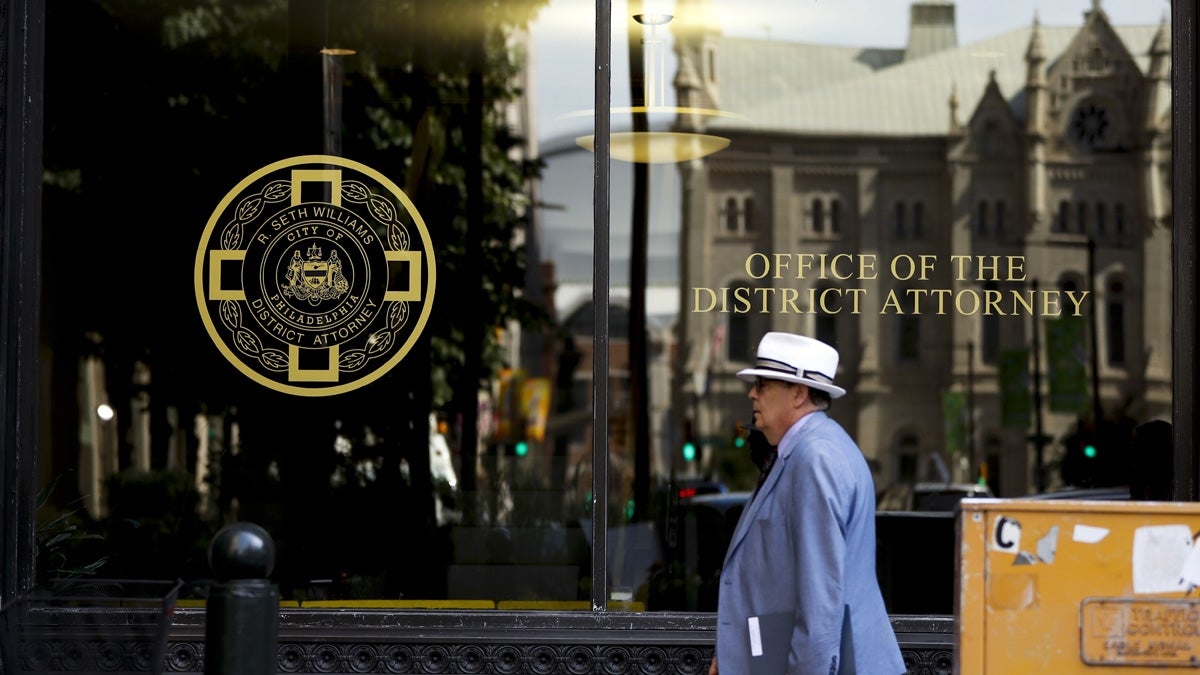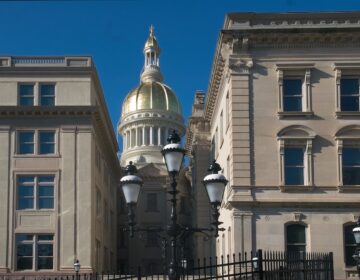Philadelphia offers to reform use of forfeiture funds, but critics say that’s not enough
Listen
(AP Photo/Matt Slocum)
The city of Philadelphia has been grappling with a lawsuit over its controversial civil asset forfeiture program since 2014, and city officials are now offering to take major steps to reform the practice. Yet the public interest law firm that brought the suit says the city is still not going far enough.
Lawyers for the Institute for Justice allege that city prosecutors illegally seized $64 million worth of homes, cars and cash from people suspected of being tied to the drug trade over a ten-year period.
Among the problems with the program, said the Institute’s senior attorney Darpana Sheth, is that city prosecutors have used funds from seized assets to pad the budget of the Philadelphia District Attorney’s Office, which has relied on forfeiture money to support salaries, overtime expenses and other budgetary items.
The practice has also come under fire by civil rights advocates because the program enables law enforcement officials to seize assets without evidence that a crime has been committed, which critics maintain is a due process violation.
Lawyers for the city are now proposing a major change: proceeds from seized assets will no longer support the budget of police and prosecutors, but instead, the money would be put toward drug treatment and drug-abuse prevention programs. City attorneys hope this would eliminate the perverse incentive to seize properties.
In February, U.S. District Judge Eduardo Robreno certified as a class-action the part of the suit dealing with problematic incentive, and the lawyers from the plaintiffs estimated that the class could include around 20,000 people.
City lawyers say changing where the forfeited proceeds go should resolve the issue. In legal parlance, the city is asking for a “permanent injunction,” preventing city officials from using the proceeds to boost city budgets.
To Sheth, the proposal is more of a “gamesmanship tactic” than the response her legal team has sought.
“It’s definitely a good thing, in terms of going forward,” she said. “But we do oppose the idea that that is the end and resolves this claim entirely.”
What Sheth and the Institute of Justice really want is for city to admit that using the civil asset forfeiture program as a cash cow violated the constitutional rights of thousands of Philadelphians. If there was a court order saying that, people whose assets were taken could use the court order as a way to sue the city for damages.
In other words, the city’s proposal offers to change how forfeiture funds are used going forward, but also protects itself against future lawsuits.
“All defendants continue to deny that they have any liability in this matter or that they violated any of the constitutional rights of plaintiffs or class members,” wrote Deputy City Solicitor Michael Miller in a recent filing.
Sheth is not happy about that.
“Our clients are entitled to a court ruling that keeping and using forfeiture proceeds to pay for salaries, over-time and other institutional expenses violates their constitutional right,” Sheth said.
A spokeswoman for the city declined to comment.
The plaintiffs in the suit, the married couple Christos and Markela Sourovelis, were kicked out of their home after police charged their son in a $40 drug-possession case. The lawsuit listed the address of the family’s Somerton home as the defendant in the case, which is customary in civil asset forfeiture cases. Prosecutors eventually dropped the case against the Sourovelis, but they stayed as plaintiffs in the Institute’s lawsuit hoping to trigger more systematic reform.
The city’s offer follows a decision from the Pennsylvania Supreme Court that made it more difficult for city authorities to seize property thought to be linked to crime. Authorities, the court found, must have evidence that a home, car or cash was used in illegal activity before seizing, significantly reining in how often prosecutors will be able to use civil asset forfeiture in the future ― at least under state law.
Last week, the Department of Justice announced it was reversing Obama-era restrictions on allowing local authorities to use federal law to seize assets of those suspected of crimes but not charged with anything. Federal officials said there would be safeguards in place to make sure law enforcement officials had enough evidence of criminal activity before seizing. Yet civil rights advocates remain skeptical, saying reviving the policy opens up the possibility of abuse.
Plaintiffs must respond to the city’s filing by next month. After that, Robreno will issue a ruling.
WHYY is your source for fact-based, in-depth journalism and information. As a nonprofit organization, we rely on financial support from readers like you. Please give today.




